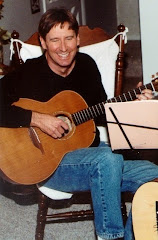For a long time now, I've tried to live a pretty simple and modest life.
I grew up in a small house, and my family didn't have a lot of money, but I loved my parents and my brother and sister. It sounds cliche, but they are good, honest folk. Everyone has problems, but overall, I feel fortunate to have the family I do. This goes for my extended family as well. It may be the upbringing, but I've never been the acquisitive sort. I've always lived simply, foregone ostentatious purchases, saved conservatively, and lived within my means.
These days my girlfriend and I have continued that tradition. We live in a small house, we grow many of our own vegetables, drive economical cars, and don't spend a lot on frivolous crap. In other words, we're bad consumers. I've sometimes felt odd about this, and society makes you feel like a loser if you don't have all the latest stuff. The messages are ubiquitous.
Today on NPR, I listened to a fellow named Bill Mckibben, who has written a book and is advocating this type of behavior for everyone. His thesis is that this lifestyle isn't a virtue, though, it's a necessity, or will be soon. I share that view. His brush is broad, and he talks about how our choices affect everything from global warming to our own personal happiness. How contemporary life has diminished contact with other people, cost us friendships, and generally made us less happy.
"In my new book, Deep Economy, I’ve set out to challenge the prevailing view of our economy. For the first time in human history, “more” is no longer synonymous with “better”—indeed, for many of us, they have become almost opposites. I want us to think in new ways about the things we buy, the food we eat, the energy we use, and the money that pays for it all. Our purchases need not be at odds with the things we truly value."
"The time has come to move beyond “growth” as the paramount economic ideal and begin pursuing prosperity in a more local direction, with cities, suburbs, and regions producing more of their own food, generating more of their own energy, and even creating more of their own culture and entertainment. This concept is already blossoming around the world with striking results, from the burgeoning economies of India and China to the more mature societies of Europe and New England. For those who worry about environmental threats, there are solutions to work through the worst of those problems; for those who wonder if there isn’t something more to life than buying, I encourage you to consider your life as an individual and as a member of a larger community."
In Mckibben's discussion on NPR, he pointed to some interesting statistics. Polls have been taken for decades asking Americans how happy they are. According to those polls, American happiness peaked in the 50s and has trended downward ever since. What is interesting about this is that this trend has occurred while our prosperity has increased along with our disposable income and our acquisition of STUFF. If one accepts the prevailing philosophy in this country it should be the opposite. That is, more $$ and STUFF=more happiness. It's not working. Mckibben then made a comparison with western Europe, where people have less money, less stuff, but also work less and have more free time. Significantly, they also spend a more time with friends and family in meaningful interaction. They eat dinner together, they participate in activities together, etc.
Here is a web site that is focused mainly on climate change, but it also touches on what you can do, in your simple life that can have a great influence on pollution and global warming. You'd be surprised what an affect simply buying food grown locally can have. Wouldn't it be nice if this didn't prove to be a sacrifice, but actually made you happier?
Subscribe to:
Post Comments (Atom)





No comments:
Post a Comment